Beware all frail and fascist woketards: Reversal of Fortune (1990) is 111 minutes of trigger-inducing emotional trauma.
The Trump-defending Alan Dershowitz is portrayed as a righteous hero fighting on behalf of a rich, heterosexual white guy.
The movie itself is determined to question our bigotry against this rich, heterosexual white guy.
Those of a certain age remember what was then (1980) called the Sunny von Bülow Case. The only thing our culture loves more than a beautiful socialite is a depressive and drug-addicted socialite. Now imagine a murder attempt thrown into the mix, and not just a murder attempt — a murder attempt in a palatial Newport estate at the hands of Sunny’s second husband.
While Martha “Sunny” von Bülow lays brain dead in an irreversible coma (she would succumb in 2008), the convicted (attempted) murderer was Claus von Bülow, a ghoulish-looking man who walked around with a stiff and unapologetic air of unearned majesty and nobility. In 1982, he was arrested and then convicted of attempting to murder his wife with an injection of insulin. Already closing in on age 60, he faced 30 years in prison.
The motive…? Fourteen million of them.
The media storm was relentless. Claus von Bülow became the most hated man in America. And he was very easy to hate.
This is where Reversal of Fortune (1990) picks up.
The year is 1985, and Harvard law professor/attorney Alan Dershowitz (Ron Silver) is in the middle of a death penalty case. From his lived-in, roomy, upper-middle-class home, Dershowitz is fighting to save his clients, the Johnson brothers, from death row (I’ll get back to this). Then the phone rings.
Mr. von Bülow is on the line.
And we’re off…
Reversal of Fortune is a fantastic piece of entertainment. Nicholas Kazan’s Oscar-nominated script is a terrific adaptation (with many embellishments) of Dershowitz’s 1986 book, Reversal of Fortune: Inside the von Bülow Case (which I recommend). Director Barbet Schroeder elicits several great performances, especially from Jeremy Irons, who won a no-brainer Best Actor Oscar as the oddly likable Claus.
Reversal of Fortune is not a courtroom drama. We hardly spend any time before a judge. Instead, it’s part procedural and part buddy movie.
At first, Dershowitz doesn’t believe Claus is innocent. In fact, he’s so sure of von Bülow’s guilt he refuses to hear his client’s side of the story, fearing the truth will restrict the latitude of his defense. Nevertheless, with the clock ticking towards a 100-day deadline to file an appeal, Dershowitz assembles a team of students, breaks them into small groups to attack specific parts of the state’s case, and prepares to win von Bülow a new trial.
As enjoyable as the procedural is, the best part is the grudging friendship and mutual respect that develops between two very different men. Dershowitz is emotional, ethnic, rigidly ethical, and 100 percent American. Claus is European, elite, bottled up, a womanizer, and uncomfortable outside his velvet-lined world.
But as the narrative moves along and the evidence points not only to massive constitutional misdeeds but proof that Claus was (allegedly) framed by his stepchildren, it’s Dershowitz who changes, not Claus—and this is the film’s brilliance.
With his tennis shoes, old t-shirts, and unruly hair, the movie immediately signals we’re supposed to like and relate to Dershowitz.
On the other hand, with his cold, regal demeanor and awkward proclamation about “always admiring the Jewish race,” we’re told to despise Claus, that he is everything the media says he is.
Then the movie pulls the rug out. Along with Dershowitz, we discover we were wrong. We were prejudiced against an “other.” We were the snobs judging a book by its cover. Not only is there a human being beneath the media caricature, there’s a warm, complicated, and endearing one. Who’s the bigot now?
An unforgettable scene involves one of the students (Felicity Huffman) losing it over Dershowitz taking the case. Today, we would recognize her as a wokester.
“I think this whole case stinks. I think Von Bulow stinks,” she says. “He’s obviously guilty of something pretty despicable, and if we free him, we become his accessories, accomplices after the fact. I’m really shocked with your reputation for defending the poor and oppressed that you’ve taken this case.”
“Oh, you’re sure he’s guilty, 100 percent guilty?” Dershowitz asks.
“He had a lawyer. He had a trial. He was convicted,” she fires back.
“Are you sure he had a fair trial?”
“Come on!”
“[A fair trial is] the basis of the whole legal system!” Dershowitz argues. “Everyone gets a defense. So the system is there for the innocent person falsely accused.”
He then lays it out:
I take cases because I get pissed off, and I am pissed off here. The family [von Bülow’s stepchildren] hired a private prosecutor: unacceptable! They conducted a private search! Now if we let them get away with that, rich people won’t go to the cops anymore. You know what they’re going to do? They’re going to get their own lawyers to collect evidence, and then they are going to choose which evidence they feel like passing on to the DA. And the next victim isn’t going to be rich, like von Bülow, but it’s going to be some poor schnook in Detroit who can’t afford, or who can’t find, a decent lawyer. I think it’s a little more complicated than your simple moral superiority.
Before the credits roll, this student believes von Bülow is innocent.
The movie, however, is not so sure. While there’s no question von Bülow’s conviction was the result of a prosecution that can only be described as a constitutional farce, Kazan’s fiercely intelligent screenplay delivers a couple of plausible scenarios that might not add up to first-degree murder, but something closer to assisted-suicide or negligent homicide.
Me? I have no idea if Claus (who died in 2019) was a murderer or not. What I do know is that within the constitutional limits of the system, the state (with a ton of corporate media help) cheated to win a conviction. If Claus were an axe murderer, that would still be unacceptable.
Protecting the civil rights of a Claus von Bülow or an axe murderer is about protecting our own civil rights. If we allow people we don’t like to have their rights violated, the line moves that much closer to us.
So why is the movie “problematic?”
Easy…
Reversal of Fortune—which is wittier and therefore funnier than any Seth Rogen comedy by a mile—had the moral courage to take one of the most vilified men in history and shove three facts into the face of the mob: 1) Claus von Bülow might very well be innocent, 2) Claus von Bülow is a human being, and 3) “I think it’s a little more complicated than your simple moral superiority.”
Yes, it is.
In today’s climate, enjoying Reversal of Fortune feels like a revolutionary act. Von Bülow represents everything the mob wants lynched: a white, wealthy, heterosexual male “credibly” accused of a crime against a woman.
While I was too involved in the movie (I hadn’t seen it in more than 30 years) to think about anything else, afterward, I realized it could never be made in this obscene era of woke fascism.
For example, there’s a wonderful fish-out-of-water scene where Claus sits down for a meal with Dershowitz and his team of students. In today’s morally polluted and intolerant entertainment environment, this would be turned into a cheer moment for the smug wokesters. We’d watch “young, female, brown, and black faces” tear him apart for his sexism and white privilege. The moment would become insufferable and fake.
Thankfully, the filmmakers (and era) were too intelligent and respectful of human nature and facts to engage in that simple and narrow-minded idiocy. Instead, from his tone-deaf jokes to having brought along his own food, Claus is the ultimate figure of awkward sympathy. This is a beautifully written and directed scene filled with comedy, pathos, and above all, humanity.
I doubt, though, that America’s weak, frail, crybully wokesters would watch long enough to make it to the dinner scene. Much earlier, Dershowitz questions the character of a witness (Fisher Stevens) because he hangs out with drag queens. At that point, this “Nazi propaganda” would be shut off.
I would be remiss if I didn’t point out how great Glenn Close is in elevating what could have been a thankless role. The late Ron Silver is equally good and delivers a movie-star performance as Dershowitz.
I’ve been a Ron Silver fan going back nearly forty years. He won me forever in the sadly-forgotten Garbo Talks (1984), which came long before he became an outspoken Republican. Silver offers much more than a physical resemblance to Dershowitz. Like Dershowitz, Silver delivers an unseen sense of intellectual integrity and warmth beneath all that principled righteousness.
Silver was never not great. Unfortunately, when Oscar time arrived, he had no chance against his co-star. Irons performed an all-timer, a miraculous job of slowly revealing Count Insulin as something more.
Anyway, even at the time, some found Reversal of Fortune “problematic.”
This, from 1991, mostly praises the film but closes with a criticism that is all too familiar these days:
While the Johnson brothers [Dershowitz’s black death row clients] are at best marginal in Reversal of Fortune, the haunting contrast they offer to the lush world of the von Bülows (and even to Dershowitz’s upper-middle-class life at Harvard) suggests a powerful rhetorical device. It is curious, though, that they exist only through their white attorney’s mouth. Of course Schroeder was making a film about life and living death in Newport, not about the many and various Johnson brothers currently lost in the legal system. It is to his credit that he also found a way to reflect, however tangentially, on social and juridical inequity. But it is unfortunate that the voiceless black brothers are so clearly an instrumental device, invented to throw a flattering spotlight on Dershowitz, the fighter for “truth.”
As the writer, an associate professor named Maurice Berger, noted earlier, the “Johnson brothers” are not real. Instead, they’re a fictionalized version of the real-life Tison brothers who did commit a jailbreak but were white and never on death row. At the time, Dershowitz defended the filmmakers and explained that the “Johnson brothers” were composite characters used to dramatize the “disproportionate discrimination against blacks on death row, which has been part of my crusade against capital punishment.”
Berger’s 1991 piece is useful in how it misses a point that would definitely be missed today. Let’s say the movie had been about the fictional Johnson brothers and their plight on death row. How does that move the civil rights ball, which can only be done through changing minds?
Forgetting for a moment how the Woke Gestapo would scream about “white saviors,” watching a movie—even in 1990—about Dershowitz defending two innocent black men on death row only accomplishes one thing: it makes us feel good about ourselves. You sit there thinking; I side with these black men, which proves I’m not racist. Movies like that are important but also spoon-feed virtue to the viewer.
Reversal of Fortune is much more vital to the cause of civil rights because it openly challenges and criticizes our prejudices (in this case, against an unlikable white man). What makes the movie great is that this is all done through subtext. The moral of the story (the injustices that come from judging a book by its cover) is never underlined. Instead, it’s an artistic act of subversion that teaches us something through emotion we could never learn intellectually.
From where I stand, that approach does more to help black people (and all people) than a forgettable piece of heavy-handed “text” like Just Mercy (2020).
Follow John Nolte on Twitter @NolteNC. Follow his Facebook Page here.
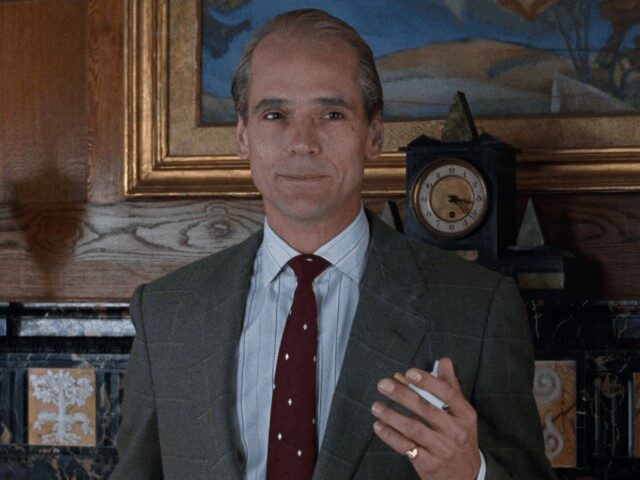
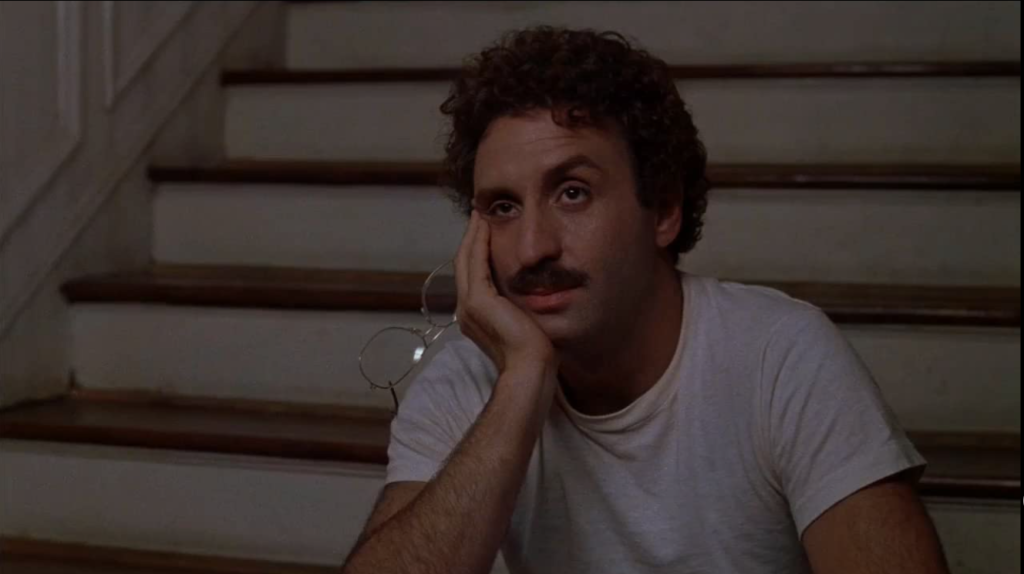
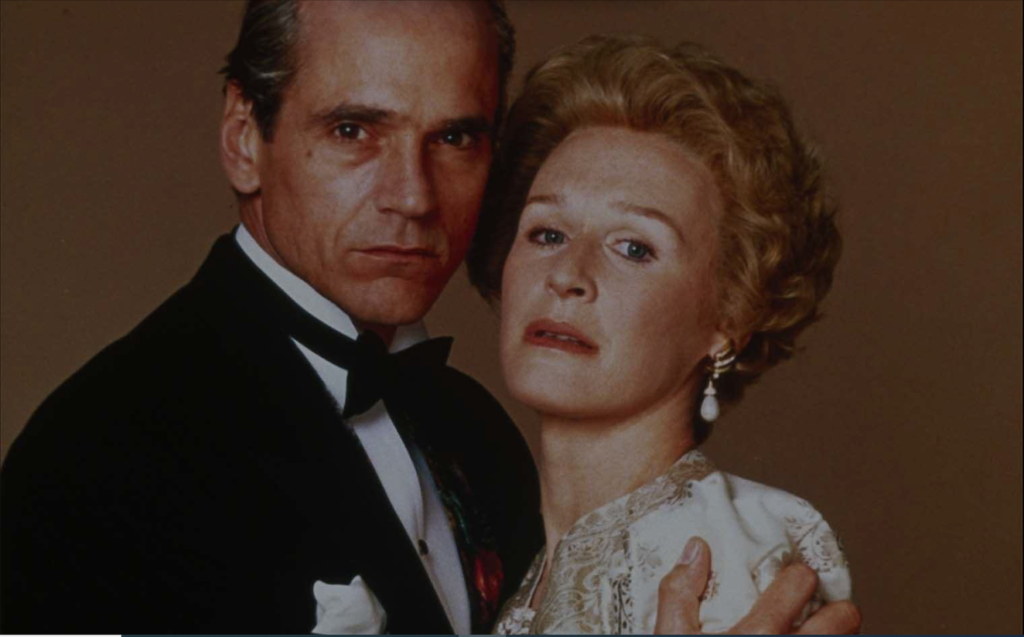
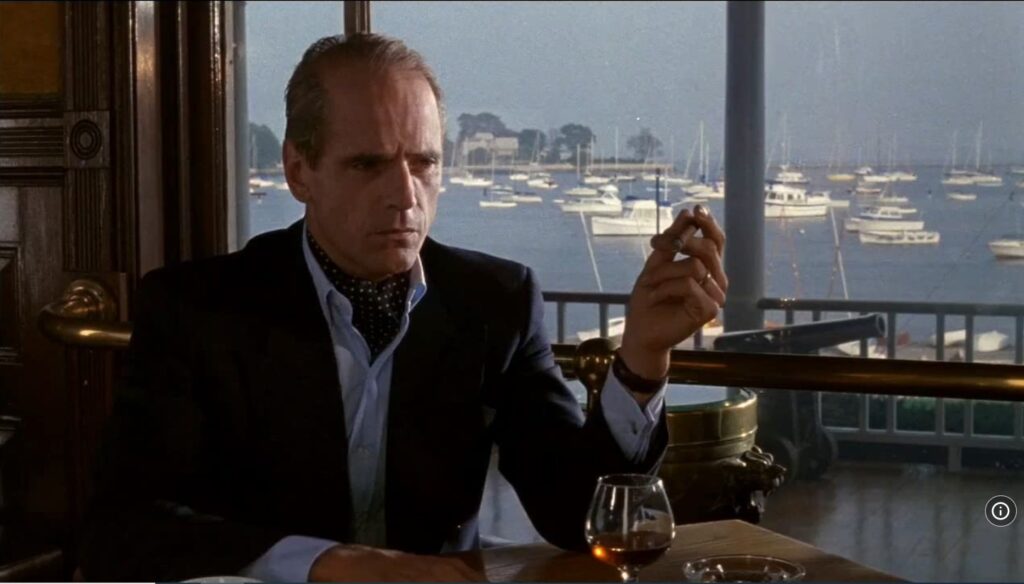
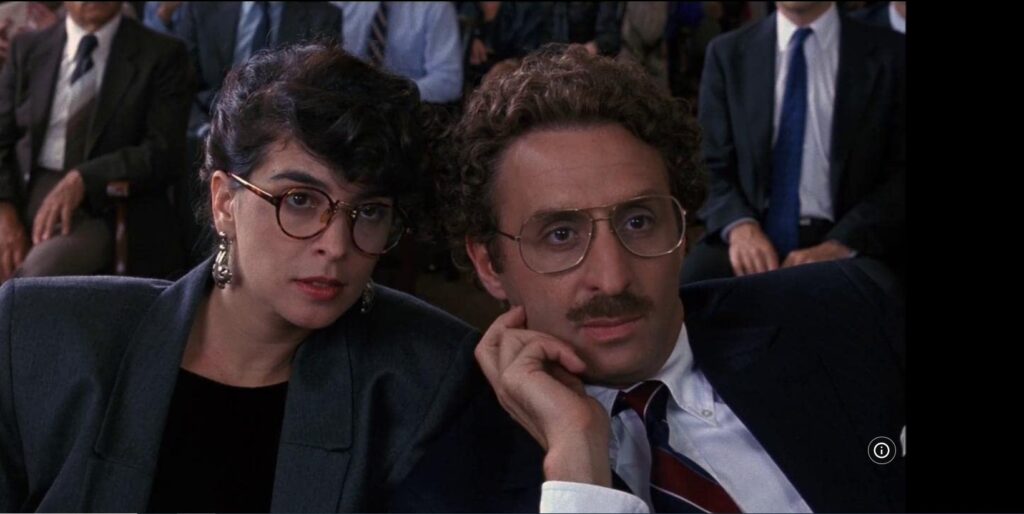
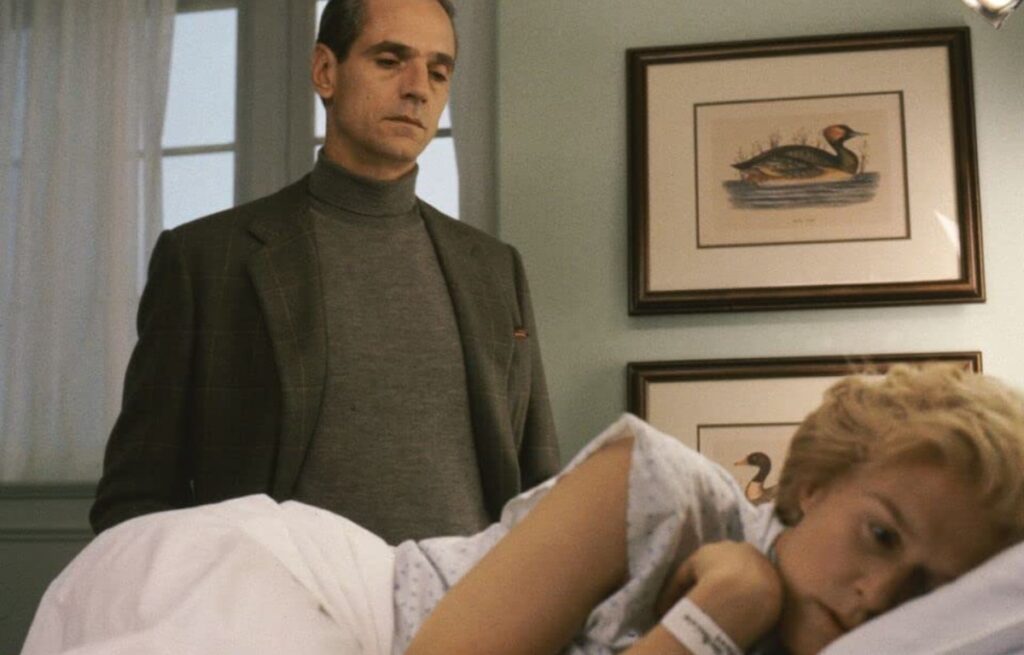
COMMENTS
Please let us know if you're having issues with commenting.